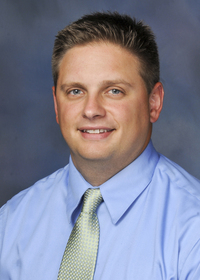Information Possibly Outdated
The information presented on this page was originally released on February 26, 2018. It may not be outdated, but please search our site for more current information. If you plan to quote or reference this information in a publication, please check with the Extension specialist or author before proceeding.
Clients offer suggestions to MSU scientists, agents
RAYMOND, Miss. -- Agricultural clients met with Mississippi State University personnel to discuss research and education needs during the annual Producer Advisory Council Meeting for the southwest region February 20.
Each year, producers and industry professionals come together to share ideas and requests with specialists, researchers and agents with the MSU Extension Service and Mississippi Agricultural and Forestry Experiment Station. The meeting is held in conjunction with Alcorn State University’s Extension Program and Hinds Community College. Both entities are longtime partners with MSU and collaborate throughout the year on multiple projects.
“We are glad you took time out of your busy schedules to visit with us today and share your needs,” said Central Mississippi Research and Extension Center Head Sherry Surrette. “Your feedback is extremely valuable to us in our efforts to provide you with the research and educational programs you need.”
Reuben Moore, vice president of the Division of Agriculture Forestry and Veterinary Medicine, said MSU experts are committed to improving Mississippians’ quality of life despite recent budget cuts.
“We’re in the education business, and we will continue to meet the needs of our citizens through our research and Extension activities,” he said.
Extension Director Gary Jackson said his organization’s goals align with the results of a three-year survey by Extension that measured the concerns of Mississippi citizens.
“People are most concerned with having a safe community; a safe, abundant and affordable food supply; and successful young people,” Jackson said of the survey results. “Extension has programs in all of these areas. It’s our mission to help people solve problems and move our communities, people and commodities forward. And we will continue to do that.”
Six commodities were represented during breakout sessions: bees; ornamentals; forestry and wildlife; small ruminants and swine; vegetables, fruits and nuts; and beef, forages and equine.
Beekeepers want advice about developing a mobile or stationary honey-extracting and bottling facility and developing methods of communication to help protect bees from pesticides. They are interested in developing programs aimed at young people, investigating sources of funding for first-time bee keepers, and more research on varroa mites and small hive beetles.
The ornamental group asked for more instructional programs on grafting, more educational opportunities for certified landscapers and more outreach to schools to increase interest of young people in related careers.
Forestry and wildlife representatives said they need more educational programs on risk management and diversifying assets. They would also like to coordinate programs with all federal and state agencies, which would help producers and agencies stay informed about what programs each agency offers. Members of the group expressed concern about the decline of the state’s road infrastructure.
Small ruminant and swine producers said they want an in-depth goat and sheep certification course to enhance growers’ skills and knowledge. They would also like MSU to hire an Extension specialist and more programs on marketing.
Members of the vegetable, fruit and nut group requested more information on the cost-effectiveness of irrigation in pecans and vegetables. They asked for additional training and information on cost assistance for Good Agricultural Practices, the U.S. Department of Agriculture voluntary audit program aimed at reducing microbial food safety hazards. The group also wants an Extension vegetable specialist.
Representatives of the beef, forages and equine group want more information about grazing crops and diversifying vaccination programs. They also would like research on combining forestry and grazing, as well as the cost-effectiveness of fall versus spring calving.


















